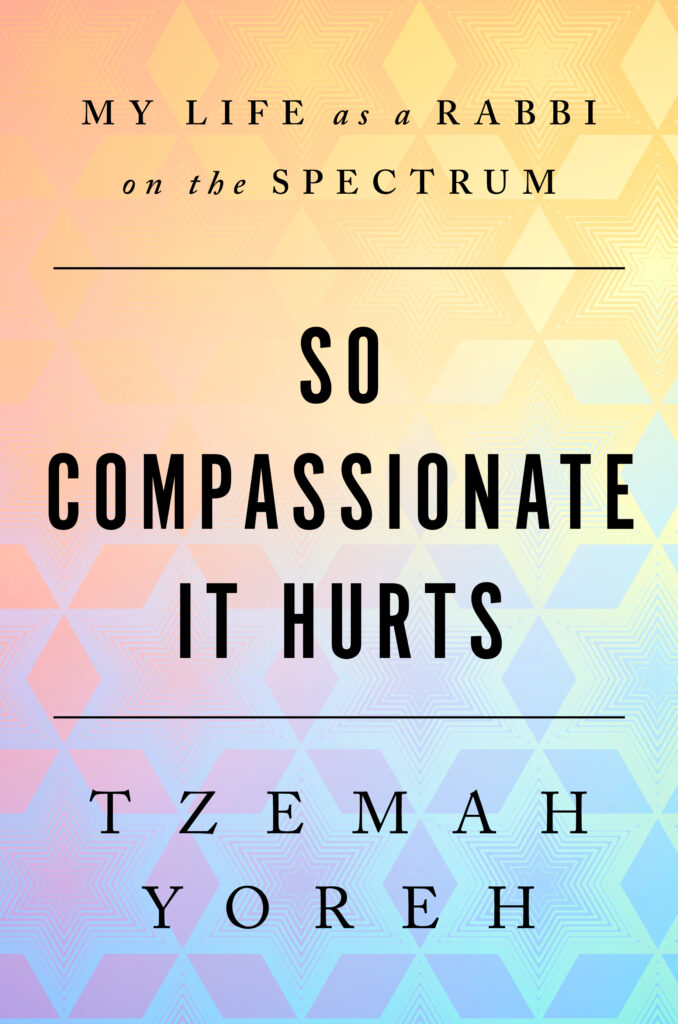Why is this subject “So Compassionate it Hurts” important in the world?
I’m writing this now and sharing my experience with my son Elisha.
At seven, Elisha inhabits a deeper band of the autism spectrum than I ever did. Will he ever have the words? Will he ever be able to advocate for himself and his needs? I do not know.
And if that is the case, I owe the beautiful human being who is my son to speak on his behalf. I want to understand him and what he needs to lead a fulfilling life and find a way to give it to him.
Because it is both my fault and my privilege that Elisha is autistic. Autism runs strong in the genes of my family. I went ahead and procreated with the full knowledge that I might have children like me, and Elisha is such a precious blessing, a sphinx whose puzzle I have not solved.
And so I will force myself to become even more eloquent, to turn over every rock to facilitate a meaningful and fulfilling life for my beautiful boy.
But there is more than my personal obligation to my son: There is my moral obligation to all my fellow journeyers on the spectrum. As a relatively articulate member of those who inhabits the various bands of the autism spectrum, I have the duty to speak up, to become an advocate because I can, while so many of us cannot.
I only realized this in the last few years. I only realized this when I became a community rabbi, and the weight of responsibility began to rest on my shoulders.
What is the pressing issue right, and how are you addressing it?
As the world slowly acknowledges neuro-diversity, it is important to have as many stories of neuro-diverse individuals out there so that neuro-typical people can understand who we are and so neuro-divergent people know they are not alone. Reading an autobiography is how I learned about myself, and I want to pass this on to others.
Tzemah Yoreh Biography
What is your background in this subject?
This is my story, a story of an unexpected life path. I am a rabbi. I have two PhDs in Jewish studies and graduated from rabbinical school in 2015. I’ve served my community for 4.5 years. Like many people my age, I discovered I was on the spectrum through reading autobiographies of other high-functioning autistics in my late twenties after trying to understand why I was out of sync with the world, so I’ve lived my life through the prism of that knowledge for almost 16 years.
Serving as a congregational rabbi is an unexpected career for someone of my profile. It is a pastoral profession that rewards extroversion, and that seems mostly for those who intuitively grasp social dynamics. I can’t understand my closest family members most of the time, let alone a room full of people whom I know only peripherally.
And yet I have thrived.
That is because, along with the deficits of being on the spectrum, there are precious gifts that being neuroatypical bequeath me.
What is something that most people don’t know about you?
I have a third-degree black belt in Karate and have been training in martial arts for more than twenty-five years, yet I am inclined toward pacifism.
What are your passions outside of your career?
I read voraciously pop psychology, science fiction, fantasy, and detective novels. You name it I read it. I also read more than ten languages with some degree of fluency and am addicted to data-driven political news. I have been working on an Origami book for more than twenty years. But what takes up most of my time and my passion is being the primary parent to four amazing boys.
So Compassionate it Hurts
Tell me about your book.
See above regarding my background. Since this is an autobiography, my background serves as a description of the book as well.
What is next for you?
More activism on behalf of the neurotypical:
I am different, but so what? So is someone with ADHD. So is someone in a wheelchair. So is someone with darker skin.
What kind of accommodation am I asking from society?
I am asking for no accommodation from society on my behalf. I have worked like the dickens to accommodate myself. And now I can ruefully laugh at the path I have taken, at the mistakes along the way.
The path was hard, and it did not need to be as hard, which is why I am asking—no, that is not accurate—I am demanding accommodation on behalf of any person who cannot, for whatever reason, advocate effectively enough for themselves, whose voices are not resonating, because the deck is so stacked against them.
People like my son Elisha, who is presently on a deeper band of the autism spectrum and may never be able to articulate his needs.
The Era of the Cell Will Change Our Lives(Opens in a new browser tab)
Where can people buy the book?
https://www.amazon.com/So-Compassionate-Hurts-Rabbi-Spectrum-ebook/dp/B0B3SJ93S3
